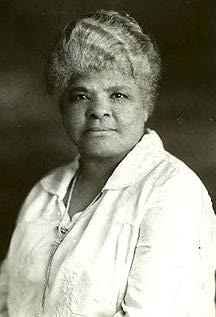|
 Ida B. Wells was a woman who made great strides for African
Americans as well as women throughout the late 19th century
and early 20th century. She was a dedicated anti-lynching
advocate, women’s right activist, journalist, and
teacher. This remarkable woman fought to abolish lynching
and establish racial and gender equality.
Ida B. Wells was a woman who made great strides for African
Americans as well as women throughout the late 19th century
and early 20th century. She was a dedicated anti-lynching
advocate, women’s right activist, journalist, and
teacher. This remarkable woman fought to abolish lynching
and establish racial and gender equality.
Wells was born in 1862 to slave parents. When she was 16
both her parents and her youngest siblings died of yellow
fever. Wells took on the responsibility of tending to her
five remaining siblings and at the age of 16 she took a
teaching position at a county school to support her family.
Wells later moved to Memphis, Tennessee where she found
a new teaching position in a city school. In 1884 while
on the train commuting to her job Wells was asked by the
conductor to move from her seat in the ladies car to the
smoking car; when she refused the conductor and two other
men physically removed her from the train. She then filed
a suit against the Chesapeake and Ohio Railroad Company
and was awarded $500 in damages but the verdict was overruled
in 1887. This case was the first of its kind in the south
and sparked a great deal of public attention.
Wells soon began writing articles under the pen name “Iola”
about issues on discrimination, inequality, poverty, and
the lack of education. The controversy of these articles
caused her teaching contract not to be renewed but enabled
her to pursue an impressive career as a journalist.
In 1889 Wells became partner in the Free Speech and Headlight.
In 1892 three of Wells black friends were lynched by an
angry white mob. Wells friends were owners of a small grocery
store that had taken away customers from the competing white
business. An angry mob attacked the store but the owners
fought back and shot one of the attackers. The owners of
the store were jailed but then a lynch mob stormed the jail
and murdered the three men.
Wells soon then began writing articles against lynching
and became an ardent anti-lynching crusader. This activism
and investigating into lynching in the South led to the
destruction of her newspaper office by angry whites.
Wells relocated to Chicago and wrote for the New York Age
as a staff writer but continued her activism against lynching. She was also a lecturer and organizer
of anti-lynching societies. Wells traveled to Great Britain
to discuss the lynching to the rest of the world. She also
became a zealous women’s rights activist. Wells also
was one of the founding members of the National Association
of the Advancement of Colored People (NAACP).
activism against lynching. She was also a lecturer and organizer
of anti-lynching societies. Wells traveled to Great Britain
to discuss the lynching to the rest of the world. She also
became a zealous women’s rights activist. Wells also
was one of the founding members of the National Association
of the Advancement of Colored People (NAACP).
In 1895 Wells married F.L Barnett, an editor of Chicago’s
early black newspaper. Wells took a time out from her activism
to raise her four children. She even ran for Illinois State
legislature, which made her one of the first black women
to run for public office in the United States. Although
she didn’t win it was quite an achievement. On March
25, 1931 she died at the age of sixty-nine.
|